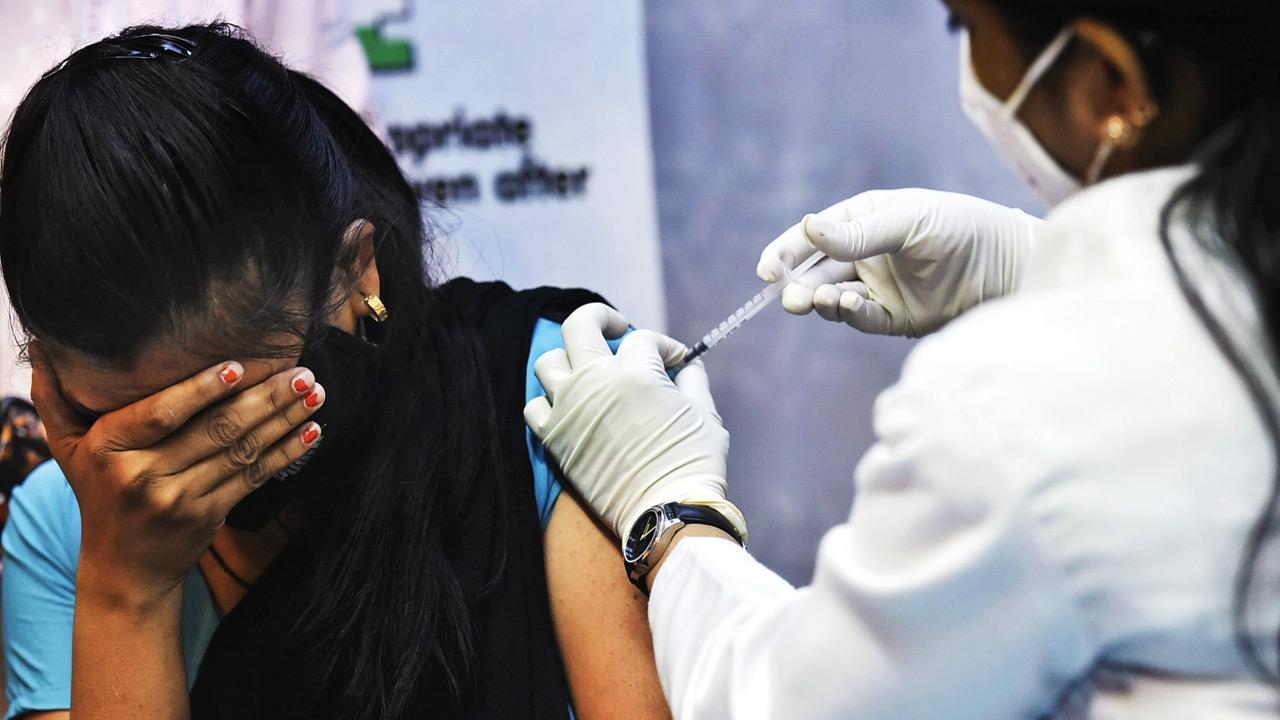While changes to periods or unexpected vaginal bleeding are not listed as common side effects of Covid-19 vaccination, more than 30,000 such reports have been made to the UK Medicines and Healthcare Products Regulatory Agency (MHRA) surveillance scheme for adverse drug reactions till September 2

Photo used for representational purpose
Some women say they experienced period changes after getting a Covid-19 vaccination. While the reported changes are short-lived, research into this possible adverse reaction remains critical to the success of the vaccination programme, according to an editorial published in The BMJ.
ADVERTISEMENT
"A link between menstrual changes after Covid-19 vaccination is plausible and should be investigated," wrote Dr Victoria Male, a reproductive specialist at Imperial College London, in the editorial.
Reports of menstrual changes after Covid-19 vaccination have been made for both mRNA and adenovirus-vectored vaccines, she added, suggesting that, if there is a connection, it is likely to be a result of the immune response to vaccination, rather than to a specific vaccine component, she said.
While changes to periods or unexpected vaginal bleeding are not listed as common side effects of Covid-19 vaccination, more than 30,000 such reports have been made to the UK Medicines and Healthcare Products Regulatory Agency (MHRA) surveillance scheme for adverse drug reactions till September 2.
However, most people find that their period returns to normal the following cycle and, importantly, there is no evidence that Covid-19 vaccination adversely affects fertility, Male said.
The MHRA states that its surveillance data does not support a link between changes to menstrual periods and Covid-19 vaccines, since the number of reports is low in relation to both the number of people vaccinated and the prevalence of menstrual disorders generally.
However, the way in which data is collected makes firm conclusions difficult, Male noted.
She argued that approaches better equipped to compare rates of menstrual changes in vaccinated versus unvaccinated populations are needed, and pointed to the study that the US National Institutes of Health (NIH) has undertaken.
Indeed, the menstrual cycle may be affected by the body's immune response to the virus itself, with one study showing menstrual disruption in around a quarter of women infected with SARS-CoV2.
If a link between vaccination and menstrual changes is confirmed, this will allow individuals seeking vaccination to plan in advance for potentially altered cycles, Male contended.
In the meantime, clinicians must encourage their patients to report any changes to periods or unexpected vaginal bleeding after vaccination. And anyone reporting a change in periods persisting over a number of cycles, or new vaginal bleeding after the menopause, should be managed according to the usual clinical guidelines for these conditions, she suggested.
This story has been sourced from a third party syndicated feed, agencies. Mid-day accepts no responsibility or liability for its dependability, trustworthiness, reliability and data of the text. Mid-day management/mid-day.com reserves the sole right to alter, delete or remove (without notice) the content in its absolute discretion for any reason whatsoever.
 Subscribe today by clicking the link and stay updated with the latest news!" Click here!
Subscribe today by clicking the link and stay updated with the latest news!" Click here!







